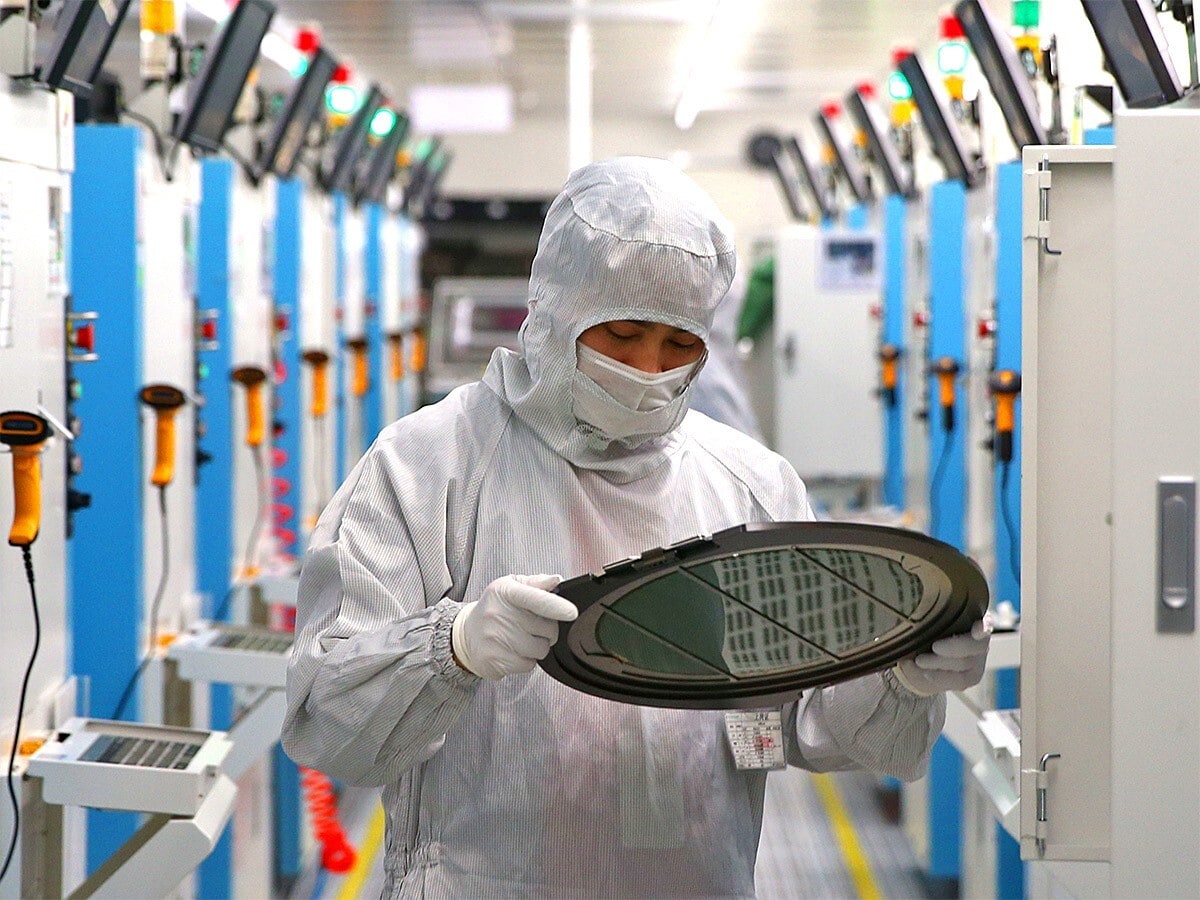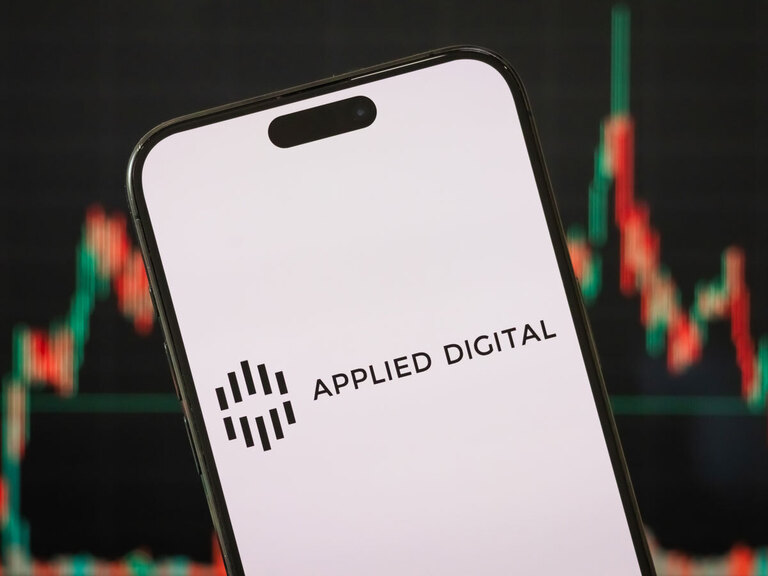A global shortage of semiconductor chips has energised the iShares PHLX Semiconductor ETF (SOXX) this year.
The SOXX has soared 54% over the last 12 months to sit at $516.29 at the close on 5 November.
“The unit volume growth in many of the markets that they serve will continue to drive very good growth for the semiconductor market,” said Mario Morales, group vice president, enabling technologies and semiconductors at market research company IDC.
The SOXX seeks to track the investment results of an index composed of US-listed equities in the semiconductor sector. It has exposure to US companies that design, manufacture, and distribute semiconductors, which play a crucial role in so many everyday items from cars and electric vehicles to electronics, and mobile phones.
SOXX shares have been boosted by the global shortage in semiconductor chips as makers such as Taiwan Semiconductor Manufacturing Company [TSM] struggle to keep up with rocketing demand as the world increasingly goes digital and green — pushing up demand for electric vehicles — in the wake of the pandemic.
“The unit volume growth in many of the markets that they serve will continue to drive very good growth for the semiconductor market” - Mario Morales, group vice president
Supply chain squeezes as economies crank up again following lockdowns have also impacted supply. Major companies to be hit include car manufacturers Ford [F] and General Motors [GM], and iPhone maker Apple [AAPL].
It has put semiconductor companies in a sweet spot at present, still racking up good sales, upping investment to boost capacity and also raising prices. Indeed, TSMC is reported to be looking at hiking prices by 20% as the crunch continues.
Performance of SOXX
The SOXX, founded in 2001, has total assets of $8.7bn, compared with the SPDR S&P Semiconductor ETF [XSD] that has assets under management of $1.4bn. XSD’s shares have climbed around 70% in the last 12 months.
The SOXX has 30 holdings, of which Nvidia [NVDA] has the biggest weighting at 9.7%, followed by Broadcom [AVGO] on 8.04%, Intel Corporation [INTC] with 6.78%, Qualcomm [QCOM] with 5.53%, Texas Instruments [TXN] with 5.2% and Advanced Micro Devices [AMD] with 4.53%.
It’s not just the shortage helping these stocks: it is the products and services they are powering both today and in the future. That is where the real drivers lie.
$8.7billion
Total assets of the iShares PHLX Semiconductor ETF
Advanced Micro Devices, whose share price has risen 65% over the last 12 months, recently reported a 54% increase in revenues in its third quarter. It was boosted by rising corporate demand for its products, computer graphics in the games world and powering virtual reality machines.
Nvidia shares have also supported the SOXX as the graphics chip maker’s shares zoomed 119% over 12 months, helped by demand for video games and data centres. TSMC, the world’s largest semiconductor manufacturer has been boosted by demand for the new Apple iPhone, price hikes and rival Intel outsourcing the manufacturing of graphic cards to it.
The semiconductor sector has more room to grow. A recent report from IDC expects the market to grow by 17.3% this year, compared with 10.8% in 2020. Growth is driven by demand for chips for use in mobile phones, notebooks, servers, cars, smart home tech, video games, wearables, and wi-fi access points. Overall, the market is expected to reach $600bn by 2025, which is a CAGR of 5.3%.
That said, semiconductor companies have been aggressively ramping up manufacturing facilities. So while the current shortage could continue into 2022, there is potential for overcapacity in 2023.
Boston Consulting Group predicts that the sector will need to pump in around $3tn into research and development and capital spending over the next 10 years to meet the rising demand and avoid future shortages.
Not everyone is excited about the market’s potential. Northland Capital Markets analysts, for example, recently downgraded AMD and Intel to ‘hold’.
“Demand has been pulled forward by the pandemic and an inventory build is underway with it starting to show up on balances sheets throughout the supply chain” - Northland Securities analyst Gus Richard
“Demand has been pulled forward by the pandemic and an inventory build is underway with it starting to show up on balances sheets throughout the supply chain,” Northland Securities analyst Gus Richard said, as reported by The Street. “As the global economy recovers…people will transition from buying stuff to doing stuff, and demand for products that consume semiconductors is going to slow, in our view.”
The semiconductor sector shares also stand to gain from busy mergers and acquisitions activity. Nvidia is hoping to buy Arm Holdings for $40bn — depending on regulators’ decisions. AMD is snapping up field-programmable chip maker Xilinx for $35bn.
The chips are certainly not going down any time soon for this ETF.
Disclaimer Past performance is not a reliable indicator of future results.
CMC Markets is an execution-only service provider. The material (whether or not it states any opinions) is for general information purposes only, and does not take into account your personal circumstances or objectives. Nothing in this material is (or should be considered to be) financial, investment or other advice on which reliance should be placed. No opinion given in the material constitutes a recommendation by CMC Markets or the author that any particular investment, security, transaction or investment strategy is suitable for any specific person.
The material has not been prepared in accordance with legal requirements designed to promote the independence of investment research. Although we are not specifically prevented from dealing before providing this material, we do not seek to take advantage of the material prior to its dissemination.
CMC Markets does not endorse or offer opinion on the trading strategies used by the author. Their trading strategies do not guarantee any return and CMC Markets shall not be held responsible for any loss that you may incur, either directly or indirectly, arising from any investment based on any information contained herein.
*Tax treatment depends on individual circumstances and can change or may differ in a jurisdiction other than the UK.
Continue reading for FREE
- Includes free newsletter updates, unsubscribe anytime. Privacy policy





